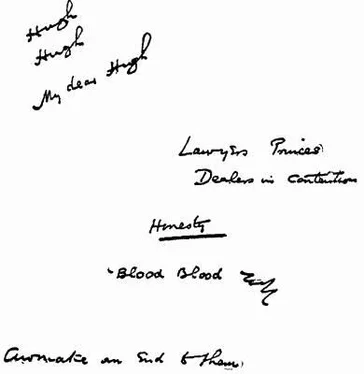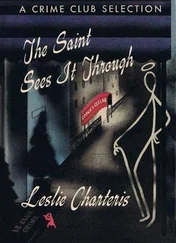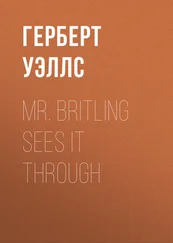Herbert Wells - Mr. Britling Sees It Through
Здесь есть возможность читать онлайн «Herbert Wells - Mr. Britling Sees It Through» весь текст электронной книги совершенно бесплатно (целиком полную версию без сокращений). В некоторых случаях можно слушать аудио, скачать через торрент в формате fb2 и присутствует краткое содержание. Жанр: Классическая проза, на английском языке. Описание произведения, (предисловие) а так же отзывы посетителей доступны на портале библиотеки ЛибКат.
- Название:Mr. Britling Sees It Through
- Автор:
- Жанр:
- Год:неизвестен
- ISBN:нет данных
- Рейтинг книги:4 / 5. Голосов: 1
-
Избранное:Добавить в избранное
- Отзывы:
-
Ваша оценка:
- 80
- 1
- 2
- 3
- 4
- 5
Mr. Britling Sees It Through: краткое содержание, описание и аннотация
Предлагаем к чтению аннотацию, описание, краткое содержание или предисловие (зависит от того, что написал сам автор книги «Mr. Britling Sees It Through»). Если вы не нашли необходимую информацию о книге — напишите в комментариях, мы постараемся отыскать её.
Mr. Britling Sees It Through — читать онлайн бесплатно полную книгу (весь текст) целиком
Ниже представлен текст книги, разбитый по страницам. Система сохранения места последней прочитанной страницы, позволяет с удобством читать онлайн бесплатно книгу «Mr. Britling Sees It Through», без необходимости каждый раз заново искать на чём Вы остановились. Поставьте закладку, и сможете в любой момент перейти на страницу, на которой закончили чтение.
Интервал:
Закладка:
"Did you ever see such peas, Mr. Dick?" said Mr. Britling by way of introduction.
"My word ," said Mr. Direck in a good old Farmer Hayseed kind of voice.
"Aye-ya!" said the station-master in singularly strident tones. "It be a rare year for sweet peas," and then he slammed the door of the carriage in a leisurely manner and did dismissive things with his flag, while the two gentlemen took stock, as people say, of one another.
§ 3
Except in the doubtful instance of Miss Mamie Nelson, Mr. Direck's habit was good fortune. Pleasant things came to him. Such was his position as the salaried secretary of this society of thoughtful Massachusetts business men to which allusion has been made. Its purpose was to bring itself expeditiously into touch with the best thought of the age.
Too busily occupied with practical realities to follow the thought of the age through all its divagations and into all its recesses, these Massachusetts business men had had to consider methods of access more quintessential and nuclear. And they had decided not to hunt out the best thought in its merely germinating stages, but to wait until it had emerged and flowered to some trustworthy recognition, and then, rather than toil through recondite and possibly already reconsidered books and writings generally, to offer an impressive fee to the emerged new thinker, and to invite him to come to them and to lecture to them and to have a conference with them, and to tell them simply, competently and completely at first hand just all that he was about. To come, in fact, and be himself—in a highly concentrated form. In this way a number of interesting Europeans had been given very pleasant excursions to America, and the society had been able to form very definite opinions upon their teaching. And Mr. Britling was one of the representative thinkers upon which this society had decided to inform itself. It was to broach this invitation and to offer him the impressive honorarium by which the society honoured not only its guests but itself, that Mr. Direck had now come to Matching's Easy. He had already sent Mr. Britling a letter of introduction, not indeed intimating his precise purpose, but mentioning merely a desire to know him, and the letter had been so happily phrased and its writer had left such a memory of pleasant hospitality on Mr. Britling's mind during Mr. Britling's former visit to New York, that it had immediately produced for Mr. Direck an invitation not merely to come and see him but to come and stay over the week-end.
And here they were shaking hands.
Mr. Britling did not look at all as Mr. Direck had expected him to look. He had expected an Englishman in a country costume of golfing tweeds, like the Englishman in country costume one sees in American illustrated stories. Drooping out of the country costume of golfing tweeds he had expected to see the mildly unhappy face, pensive even to its drooping moustache, with which Mr. Britling's publisher had for some faulty and unfortunate reason familiarised the American public. Instead of this, Mr. Britling was in a miscellaneous costume, and mildness was the last quality one could attribute to him. His moustache, his hair, his eyebrows bristled; his flaming freckled face seemed about to bristle too. His little hazel eyes came out with a "ping" and looked at Mr. Direck. Mr. Britling was one of a large but still remarkable class of people who seem at the mere approach of photography to change their hair, their clothes, their moral natures. No photographer had ever caught a hint of his essential Britlingness and bristlingness. Only the camera could ever induce Mr. Britling to brush his hair, and for the camera alone did he reserve that expression of submissive martyrdom Mr. Direck knew. And Mr. Direck was altogether unprepared for a certain casualness of costume that sometimes overtook Mr. Britling. He was wearing now a very old blue flannel blazer, no hat, and a pair of knickerbockers, not tweed breeches but tweed knickerbockers of a remarkable bagginess, and made of one of those virtuous socialistic homespun tweeds that drag out into woolly knots and strings wherever there is attrition. His stockings were worsted and wrinkled, and on his feet were those extraordinary slippers of bright-coloured bast-like interwoven material one buys in the north of France. These were purple with a touch of green. He had, in fact, thought of the necessity of meeting Mr. Direck at the station at the very last moment, and had come away from his study in the clothes that had happened to him when he got up. His face wore the amiable expression of a wire-haired terrier disposed to be friendly, and it struck Mr. Direck that for a man of his real intellectual distinction Mr. Britling was unusually short.
For there can be no denying that Mr. Britling was, in a sense, distinguished. The hero and subject of this novel was at its very beginning a distinguished man. He was in the Who's Who of two continents. In the last few years he had grown with some rapidity into a writer recognised and welcomed by the more cultivated sections of the American public, and even known to a select circle of British readers. To his American discoverers he had first appeared as an essayist, a serious essayist who wrote about aesthetics and Oriental thought and national character and poets and painting. He had come through America some years ago as one of those Kahn scholars, those promising writers and intelligent men endowed by Auguste Kahn of Paris, who go about the world nowadays in comfort and consideration as the travelling guests of that original philanthropist—to acquire the international spirit. Previously he had been a critic of art and literature and a writer of thoughtful third leaders in the London Times . He had begun with a Pembroke fellowship and a prize poem. He had returned from his world tour to his reflective yet original corner of The Times and to the production of books about national relationships and social psychology, that had brought him rapidly into prominence.
His was a naturally irritable mind, which gave him point and passion; and moreover he had a certain obstinate originality and a generous disposition. So that he was always lively, sometimes spacious, and never vile. He loved to write and talk. He talked about everything, he had ideas about everything; he could no more help having ideas about everything than a dog can resist smelling at your heels. He sniffed at the heels of reality. Lots of people found him interesting and stimulating, a few found him seriously exasperating. He had ideas in the utmost profusion about races and empires and social order and political institutions and gardens and automobiles and the future of India and China and aesthetics and America and the education of mankind in general.... And all that sort of thing....
Mr. Direck had read a very great deal of all this expressed opiniativeness of Mr. Britling: he found it entertaining and stimulating stuff, and it was with genuine enthusiasm that he had come over to encounter the man himself. On his way across the Atlantic and during the intervening days, he had rehearsed this meeting in varying keys, but always on the supposition that Mr. Britling was a large, quiet, thoughtful sort of man, a man who would, as it were, sit in attentive rows like a public meeting and listen. So Mr. Direck had prepared quite a number of pleasant and attractive openings, and now he felt was the moment for some one of these various simple, memorable utterances. But in none of these forecasts had he reckoned with either the spontaneous activities of Mr. Britling or with the station-master of Matching's Easy. Oblivious of any conversational necessities between Mr. Direck and Mr. Britling, this official now took charge of Mr. Direck's grip-sack, and, falling into line with the two gentlemen as they walked towards the exit gate, resumed what was evidently an interrupted discourse upon sweet peas, originally addressed to Mr. Britling.
Читать дальшеИнтервал:
Закладка:
Похожие книги на «Mr. Britling Sees It Through»
Представляем Вашему вниманию похожие книги на «Mr. Britling Sees It Through» списком для выбора. Мы отобрали схожую по названию и смыслу литературу в надежде предоставить читателям больше вариантов отыскать новые, интересные, ещё непрочитанные произведения.
Обсуждение, отзывы о книге «Mr. Britling Sees It Through» и просто собственные мнения читателей. Оставьте ваши комментарии, напишите, что Вы думаете о произведении, его смысле или главных героях. Укажите что конкретно понравилось, а что нет, и почему Вы так считаете.






